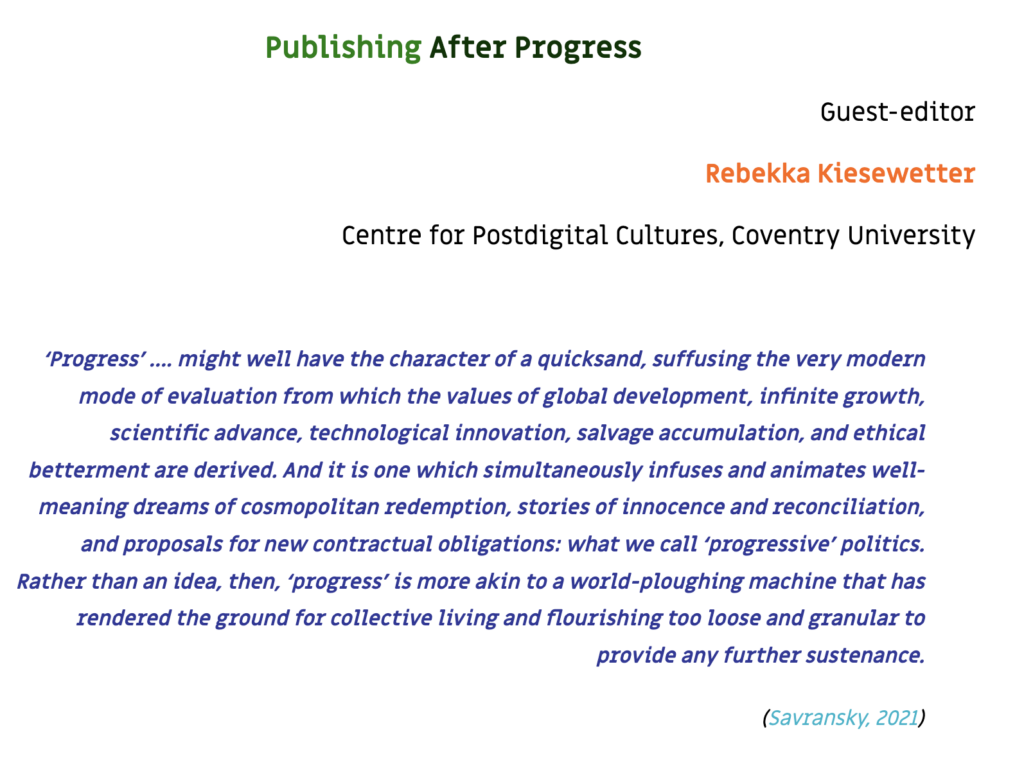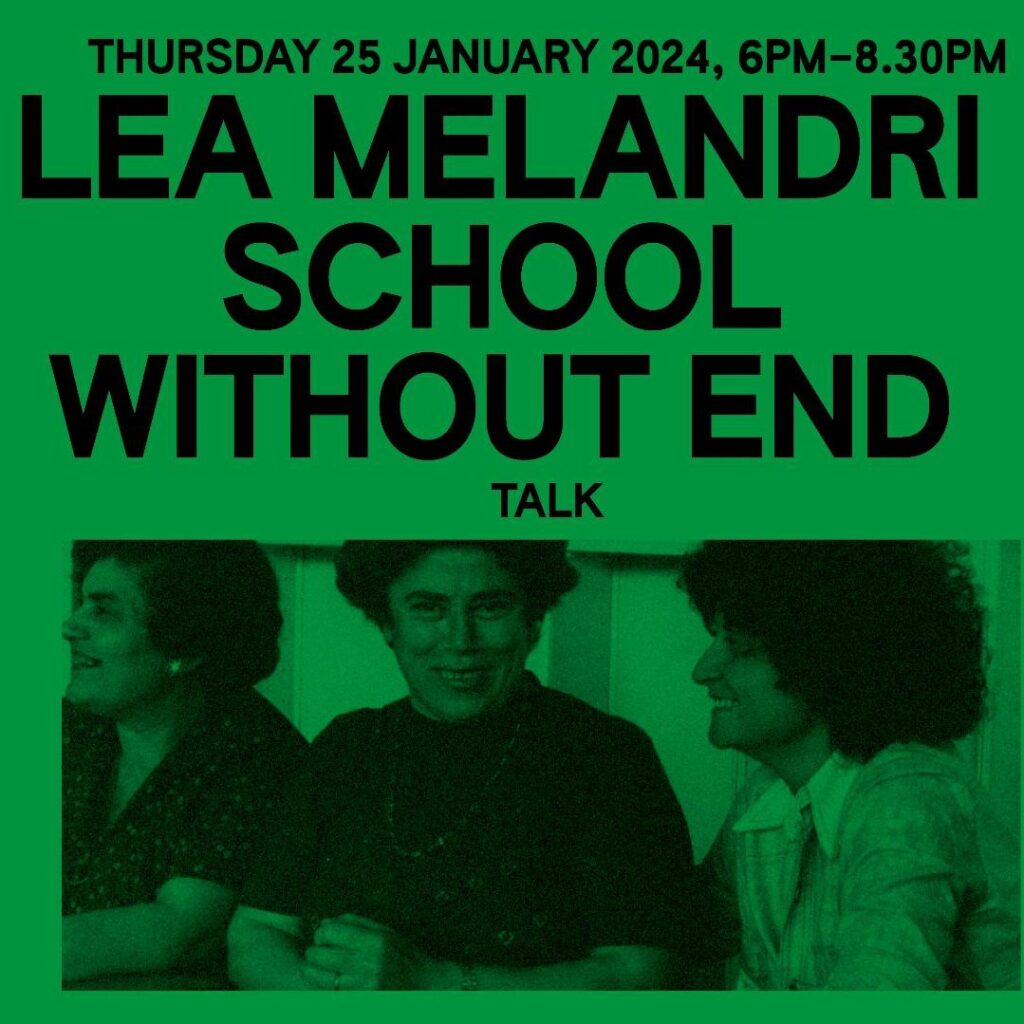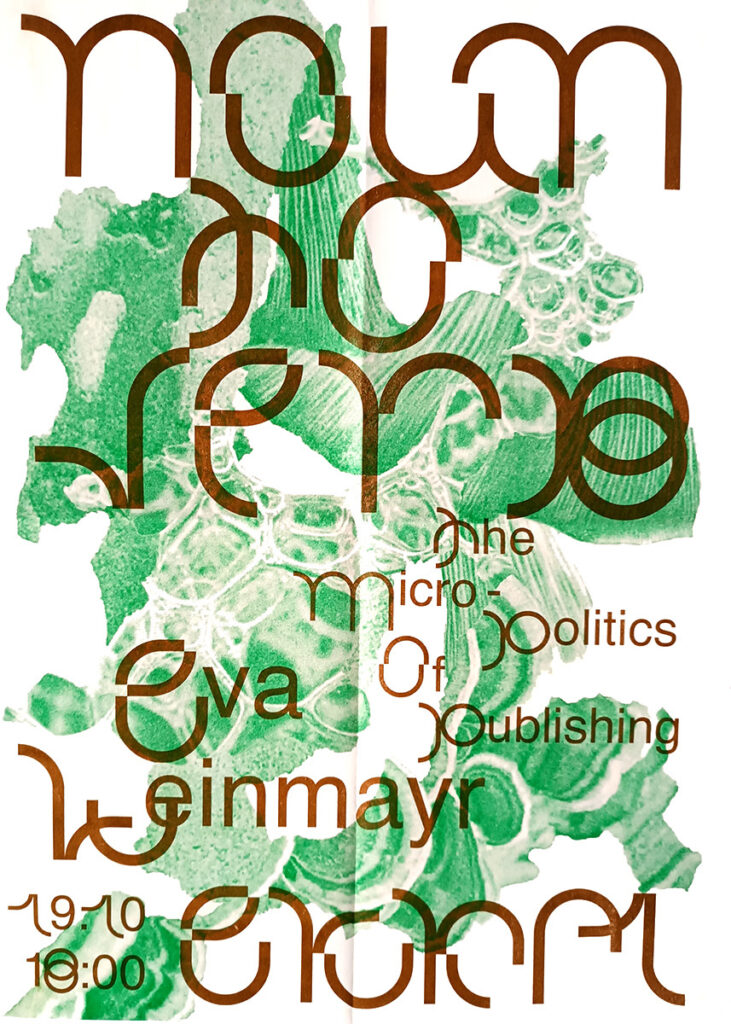Welcome to the first Post-Publishing Newsletter! Please find underneath a selection of recent updates from Post-Publishing researchers. You can sign up to receive our newsletter here.

Judith Fathallah’s new book Killer Fandom. Fan Studies and the Celebrity Serial Killer came out in December, the first long-form treatment of serial killer fandom, published open access by mediastudies.press. Judith has been promoting the book in various places, including by doing a podcast interview for an episode of New Books Network, and by giving a talk at a book launch for Killer Fandom at the Centre for Postdigital Cultures on 12 December. Judith has also as part of her work on the Open Book Futures project organised a workshop in South Africa at the University of Cape Town from 7 to 9 February, Towards Sustainable Open Access Book Publishing in the African Context (with the OBC, the Association of African Universities, the African Platform for Open Scholarship, Lancaster University, Thoth, and OAPEN/DOAB). The workshop explored challenges that inhibit a sustainable open access book publishing ecosystem with the remit of developing interventions that contribute and/or accelerate the growth of African scholarship. On 19 January, Judith also gave a keynote at the Fanficforum at Goethe University Frankfurt (Germany) on ‘Queerbaiting: still a useful concept?’
Clare Harvey is currently one of the lead writers with Inspire Culture’s ‘I Am A Writer’ (IAAW) project, which runs co-created writing projects with elderly, neurodiverse/neurodivergent, and hard-to-reach participants in a variety of community settings throughout the East Midlands this spring. Clare aims to remix participants’ local memories with some of DH Lawrence’s descriptions of the Nottinghamshire landscape to create new fiction with a strong sense of place. More info on IAAW here: https://www.inspireculture.org.uk/reading-information/reading/i-am-a-creator/i-am-a-writer-2023-writers-commission/

Alexandros Plasatis is the lead-editor of the literary magazine The Other Side of Hope, which this December published its third online issue, which includes 7 short stories, 1 novel excerpt, 20 poems, 7 non-fiction pieces, 3 book reviews, and a collection of poetry by young refugee women at Young Roots and Refugee Council. Alexandros and the issues’ contributors have been promoting the new issue and all their previous and upcoming events can be found on the magazine’s website, under the “diary” section of the magazine. Alexandros has also published an article in The Bookseller (Alexandros Plasatis, ‘Don’t Marginalise Migrants’, The Bookseller, 18 December 2023) and he did an interview for the Un/Documented podcast by IMIX: ‘International Migrants Day: I am a migrant’ in which he discusses the other side of hope with Julie Rampen (in the second part).
Adeola Eze has presented her research at various conferences and events, including the paper ‘Layers Unveiled: Exploring Palimpsests and Unravelling Cicero’s De Republica in Gilbert Augustine Thierry’s novel, The Palimpsest and David Annwn’s poem “Palimpsest’’’, at the Centre for Arts, Memory and Communities’ (CAMC) Work-in-Progress seminar in January 2024, and she will present the paper ‘Textual and Visual Interplay of Antiquity in Kathleen Fraser’s m ov a b le TYYPE’, at the Classical Association Conference 2024 at Warwick University, 22-24 March 2024. Adeola has also received a Rare Book School (RBS) Scholarship (2024), given by theBibliographical Society of the University of Virginia (BSUVA) to attend the course ‘The Photographic Book since 1843’ by the librarian and author Richard Ovenden.

Rebekka Kiesewetter has been invited to guest edit the next issue of the peer-reviewed open access journal Culture Machine that is titled ‘Publishing after Progress’ and will be released in July 2024. The issue invites scholars, activists, and artists to address the growing dissonance between the progress dynamics of ‘mainstream publishing’ and the way in which individuals and communities, in their editing and publishing practices, have started to tentatively experiment with ways of living and working in a ‘world after progress’ marked by humanitarian and planetary emergencies. As part of her work for the Open Book Futures research project, Rebekka has recently co-organised a matchmaking workshop in the context of the Open Call for Experimental Book Pilots connecting authors, academic presses, and open source tool and platform providers that share an interest in experimental monograph publishing.
Simon Bowie, as part of his work for the Copim community and Open Book Futures project, recently redeveloped the Copim website with an entirely new look and structure to reflect the changing nature of Copim’s expansive scope. All the code that underlies the website is available open source (MIT License) on GitHub. Simon also wrote a short blog post for Copim’s PubPub documentation site reflecting on the thinking behind the new website design and the technology used to support not only the new website structure but also the open source automated machine translation translating the site content into several non-English languages. Outside his day job, in his capacity as Associate Editor for TAKE ONE, Simon is covering Glasgow Film Festival running from 28 February to 10 March 2024 and will be coordinating his team’s coverage (and hopefully getting to write a few reviews himself!).

Maddalena Fragnito contributed to the talk and discussion ‘Feminist education in Italy and beyond. Lea Melandri in conversation with Maddalena Fragnito’ held at the Istituto Italiano di Cultura (ICI) in London on 25 and 26 January. Dedicated to key lessons from her long-standing career as a writer, feminist activist, and Chair of the Free University of Women in Milan, Melandri discussed the acclaimed film Scuola Senza Fine (School Without End) directed by Adriana Monti (1983), in conversation with Maddalena.

Eva Weinmayr, as part of the current artistic research project Ecologies of Dissemination – decolonial knowledge practice, feminist methodology, open access, a collaboration with Femke Snelting, will be co-editing PARSE Journal issue 20 (Platform for Artistic Research Sweden) forthcoming in autumn 2024. The issue, titled ‘Ecologies of Dissemination’,centers around potential strategies of dissemination that acknowledge the tensions and overlaps between feminist methodologies, decolonial knowledge practices, and principles of open access. Concerned with how the current drive to openness in dissemination policies might overlook relational aspects, it seeks to develop non-universalist policies, agreements, frameworks, licences that consider that there might be ethical reasons to refrain from release and re-use. Recently, Eva also gave a talk titled ‘Noun to Verb – the micro-politics of publishing’ at the Estonian Museum of Modern Art in Tallinn.
Janneke Adema has been invited to join the Editorial Advisory Committee (EAC) of the recently launched Coventry Open Press. As co-editor of the Journal of Electronic Publishing, Janneke is also editing a special issue on Publishing and Climate Justice, which asks whether the publishing industry as a whole has really reflected on its own complicity in the climate emergency and on the long-term sustainability of its knowledge production and distribution practices. The Call for Papers is now live with abstract submissions due on 30 April.